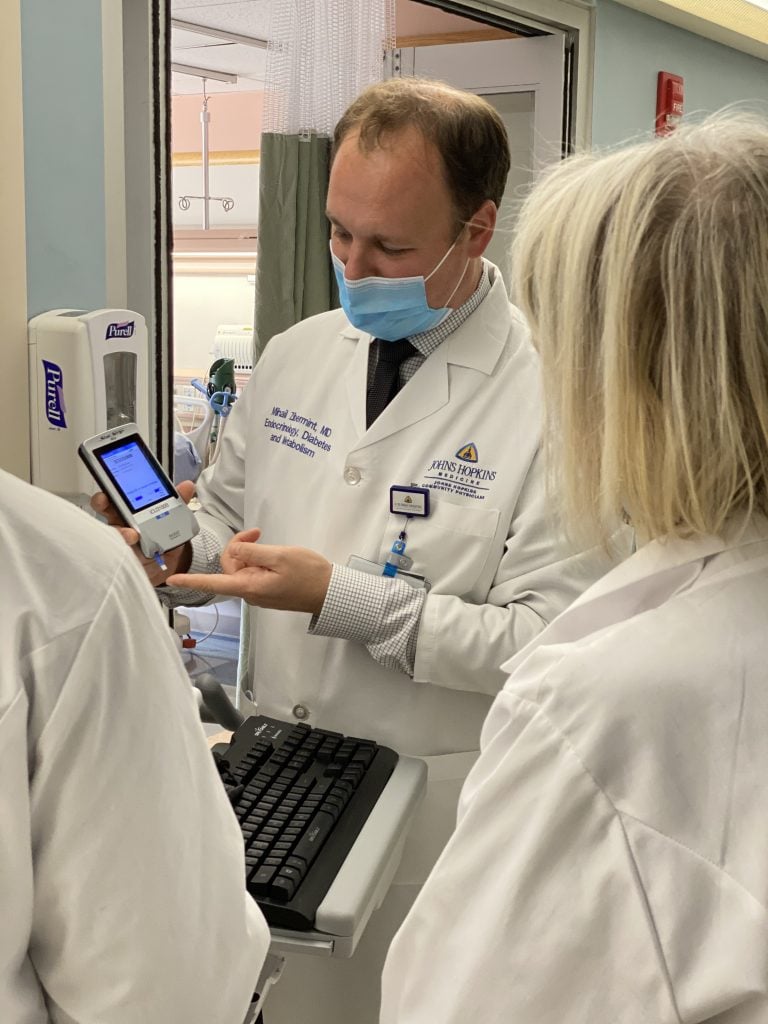 Patients with classic congenital adrenal hyperplasia (CAH) due to 21-hydroxylase deficiency (21OHD) may benefit from the drug tildacerfont, according to the results from two Phase 2 clinical studies recently published in The Journal of Clinical Endocrinology & Metabolism. Researchers led by Chris N. Barnes, PhD, of Spruce Biosciences (who funded the trial), point out that...
Patients with classic congenital adrenal hyperplasia (CAH) due to 21-hydroxylase deficiency (21OHD) may benefit from the drug tildacerfont, according to the results from two Phase 2 clinical studies recently published in The Journal of Clinical Endocrinology & Metabolism. Researchers led by Chris N. Barnes, PhD, of Spruce Biosciences (who funded the trial), point out that... Patients with classic congenital adrenal hyperplasia (CAH) due to 21-hydroxylase deficiency (21OHD) may benefit from the drug tildacerfont, according to the results from two Phase 2 clinical studies recently published in The Journal of Clinical Endocrinology & Metabolism. Researchers led by Chris N. Barnes, PhD, of Spruce Biosciences (who funded the trial), point out that...
Patients with classic congenital adrenal hyperplasia (CAH) due to 21-hydroxylase deficiency (21OHD) may benefit from the drug tildacerfont, according to the results from two Phase 2 clinical studies recently published in The Journal of Clinical Endocrinology & Metabolism. Researchers led by Chris N. Barnes, PhD, of Spruce Biosciences (who funded the trial), point out that...
 As obesity and diabetes rates continue to climb, so too do rates of nonalcoholic fatty liver disease (NAFLD). A CEU 2021 session will teach attendees how to identify NAFLD as well as the best treatment protocols. As it stands, nonalcoholic fatty liver disease (NAFLD) is on track to overtake viral hepatitis as the leading cause...
As obesity and diabetes rates continue to climb, so too do rates of nonalcoholic fatty liver disease (NAFLD). A CEU 2021 session will teach attendees how to identify NAFLD as well as the best treatment protocols. As it stands, nonalcoholic fatty liver disease (NAFLD) is on track to overtake viral hepatitis as the leading cause... Since the first, all-virtual ENDO 2021 stemmed from the lingering effects of the COVID-19 pandemic, Endocrine News presents an overview of the research that specifically addressed how the virus affects patients with common comorbidities. These studies looked at COVID-19’s effects on patients with obesity, hyperglycemia, adrenal insufficiency, and a lack of vitamin D, and provide...
Since the first, all-virtual ENDO 2021 stemmed from the lingering effects of the COVID-19 pandemic, Endocrine News presents an overview of the research that specifically addressed how the virus affects patients with common comorbidities. These studies looked at COVID-19’s effects on patients with obesity, hyperglycemia, adrenal insufficiency, and a lack of vitamin D, and provide... Two recent papers touted the benefits of having an endocrine hospitalist-led Inpatient Diabetes Management Service (IDMS) in a community hospital setting to reduce the rates of both hypoglycemia and hyperglycemia, length of stay, and even hospital costs. Endocrine News gets a firsthand look at a community hospital’s use of an IDMS from both endocrinologists and...
Two recent papers touted the benefits of having an endocrine hospitalist-led Inpatient Diabetes Management Service (IDMS) in a community hospital setting to reduce the rates of both hypoglycemia and hyperglycemia, length of stay, and even hospital costs. Endocrine News gets a firsthand look at a community hospital’s use of an IDMS from both endocrinologists and... People who eat too many refined carbs and fatty meats for dinner have a higher risk of heart disease than those who eat a similar diet for breakfast, according to a nationwide study published in The Journal of Clinical Endocrinology & Metabolism. Cardiovascular diseases like congestive heart failure, heart attack and stroke are the number...
People who eat too many refined carbs and fatty meats for dinner have a higher risk of heart disease than those who eat a similar diet for breakfast, according to a nationwide study published in The Journal of Clinical Endocrinology & Metabolism. Cardiovascular diseases like congestive heart failure, heart attack and stroke are the number...